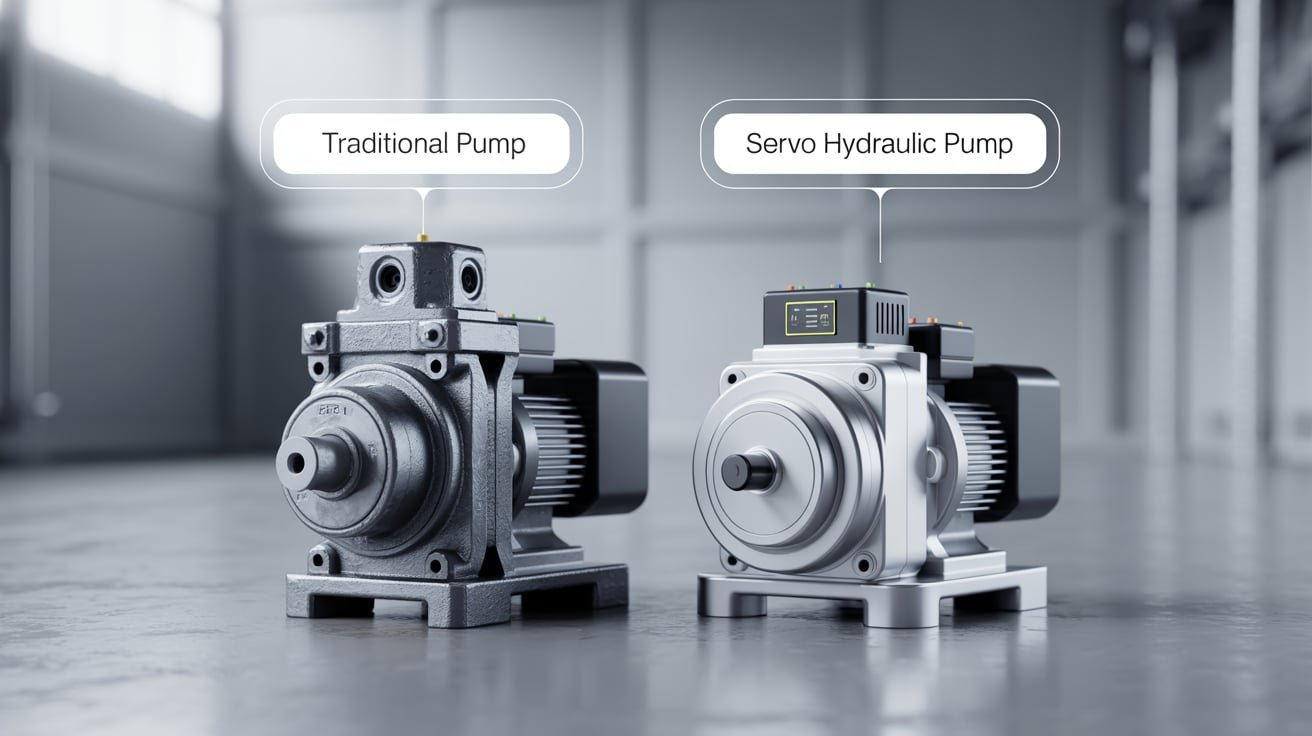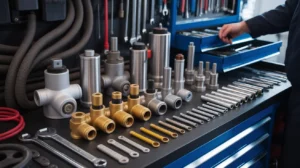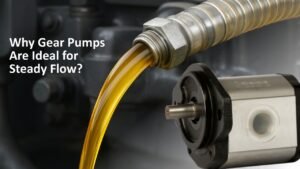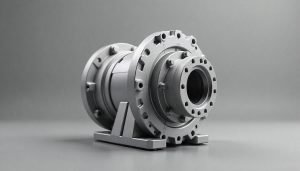Manufacturers across North America and Canada understand how essential hydraulic systems remain for their production needs. Your manufacturing output depends on machine performance because it determines your financial efficiency in areas including construction equipment manufacturing, steel or cement plants, plastics production, and the use of servo hydraulic pumps.
Manufacturers across various industries currently transition from fixed and variable displacement pumps to servo motor hydraulic pumps for their operations. Contemporary systems need control alongside efficiency along with reliability in addition to raw power capabilities.
Here we have listed out the complete comparison between traditional hydraulic pumps and hydraulic servo systems. It helps you decide which hydraulic system type fits your machinery between press, CNC press brake, baling press and injection molding machine.
What Are Traditional Hydraulic Pumps?
The traditional hydraulic pumping systems that include gear, vane, or piston pumps function at predetermined or adjustable speed modes. These systems provide fluid flow without interruption despite any changes in system use requests. The motor operates steadily throughout all periods to sustain system pressure both when machinery stands idle and when it operates.
Traditional hydraulic pumps continue providing service to simple applications that require low precision due to their presence in past machines. The growing system complexity coupled with increasing energy expenses reveal substantial drawbacks of traditional hydraulic pumps.
What Is a Servo Motor Hydraulic Pump?
The operation of a servo motor hydraulic pump derives from a Hydraulic Servo Motor, which responds to system demand. Real-time speed and torque adjustments are the role of a servo instead of continuing operation at rate. The closed-loop configuration provides accurate management of both flow and pressure values.
The hydraulic servo control system makes use of this component as a fundamental element which operates commonly within Electro Hydraulic Servo Drive configurations. The system offers excellent response time and accurate motion together with high efficiency when operating systems that require these features.
You’ll find these systems in:
- Servo injection molding machines
- CNC press brakes
- Blow molding machines
- Baling presses
- High-speed industrial presses
Comparing Features of Traditional vs. Servo Hydraulic Pumps
1. Energy Efficiency
Traditional Pumps:
Constant operation means continuous power draw. Even during idle phases, traditional systems waste energy. This leads to high electricity costs, especially in large-scale operations.
Servo Hydraulic Pumps:
These systems only run when needed. The Hydraulic Servo Motor adjusts speed and power based on real-time demand, cutting energy use by up to 70%. You get better performance with less power.
Verdict:
If you’re running machines like baling presses or CNC machines all day, the energy savings from servo pumps are hard to ignore.
2. Precision and Control
Traditional Pumps:
These pumps provide general flow and pressure but lack real-time control. In systems like plastic injection molding, slight pressure variations can affect product quality.
Servo Hydraulic Pumps:
Thanks to real-time feedback, hydraulic servo systems maintain consistent pressure and flow. This results in tighter tolerance control, repeatable results, and better surface finish in molded or pressed products.
Verdict:
If your process relies on accuracy, such as servo injection molding, servo systems deliver the control you need.
3. Heat and Noise Generation
Traditional Pumps:
Since they run continuously, these pumps generate more heat and noise. That means larger cooling systems and higher maintenance on hydraulic fluid and seals.
Servo Hydraulic Pumps:
Servo systems generate minimal heat during idle time. Lower energy waste means less cooling required and quieter operation, improving the work environment.
Verdict:
Servo pumps are ideal for operations concerned about overheating or regulatory noise limits.
4. Maintenance and Component Life
Traditional Pumps:
Frequent operation and pressure spikes increase wear on components. More maintenance is needed to keep systems running.
Servo Hydraulic Pumps:
Reduced wear and thermal stress mean longer life for valves, seals, and pumps. With fewer pressure fluctuations, your machine stays in better condition longer.
Verdict:
If you want to reduce unplanned downtime, servo-driven systems are the more reliable choice.
5. System Size and Integration
Traditional Pumps:
These systems require large motors and complex valve arrangements to maintain pressure and flow. They also need larger reservoirs and coolers.
Servo Hydraulic Pumps:
Compact and modular by design, electro hydraulic servo drives reduce the number of valves and plumbing components. They require smaller reservoirs and less space overall.
Verdict:
If you’re upgrading or designing new machines, servo systems save valuable floor space.
6. Speed and Response Time
Traditional Pumps:
Slower response times can limit production speed, especially in multi-stage processes like molding or pressing.
Servo Hydraulic Pumps:
With instant feedback and fast acceleration, servo systems reduce cycle times and improve throughput.
Verdict:
If you’re aiming for higher output and faster cycles, servo systems outperform traditional options.
7. Total Cost of Ownership
Traditional Pumps:
Lower upfront cost, but higher operating expenses from energy use, maintenance, and downtime.
Servo Hydraulic Pumps:
Slightly higher initial investment but significantly lower lifetime costs thanks to energy savings and reduced maintenance.
Verdict:
For high-volume operations, servo systems offer better long-term value.
Where Does Each System Fit Best?
| Application | Traditional Pumps | Servo Hydraulic Pumps |
| Basic construction machinery | Suitable | Overkill |
| CNC press brakes | Limited control | Precise motion |
| Injection molding | Inconsistent quality | High consistency and energy savings |
| High-tonnage presses | Higher wear and tear | Better torque and control |
| Baling and recycling equipment | Inefficient at idle | Efficient and quiet |
| Machine tool manufacturing | Less integration flexibility | Compact and easy to integrate |
Both traditional and servo hydraulic pumps have their place. But if your operations demand precision, energy efficiency, and faster production cycles, the servo motor hydraulic pump is clearly the superior choice.
Whether you’re building press machines, optimizing injection molding, or improving CNC press brakes, servo systems help you stay competitive without compromising reliability.
Making the Switch
If you’re planning to upgrade your current machines or invest in new ones, consider hydraulic servo control systems. They offer the precision, speed, and reliability required for today’s production demands.
At THM Huade, you’ll find a full range of servo solutions to meet your industry needs.
- Explore our Hydraulic Servo Systems
- Browse our selection of Hydraulic Motors
- Contact our team to get personalized recommendations for your machines
Make the smart move today. Reach out to THM Huade and discover how a modern hydraulic Servo System can upgrade your equipment performance and reduce long-term costs.



